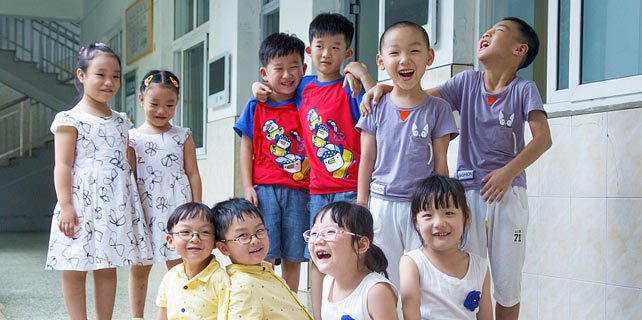Students borrowing money for cosmetic surgery
More students in Guangzhou, Guangdong province, are taking out loans for plastic surgery as access to the financial service increases.
About one-sixth of the 300 or so students who had cosmetic surgery at Guangzhou Huamei Aesthetic Hospital over the summer borrowed money for the purpose, according to Peng Weihong, assistant to the general manager of the hospital, one of the largest cosmetic surgery providers in the city.
Since mid-2015, a number of lenders targeting cosmetic surgery have tried to grab a slice of the market. Ant Financial Services Group, the online finance company backed by e-commerce giant Alibaba, began offering loans and installment payment programs for cosmetic surgery in March, said Ke Sufang, a senior researcher at Qianzhan Industry Research Institute, a consulting agency.
Loans to students for cosmetic surgery at Peng's hospital generally ranged from 10,000 to 30,000 yuan ($1,520 to $4,560), he said.
The boom in such loans is attributable to huge demand-the market sector was valued at 796.3 billion yuan in China last year, with annual growth of about 20 percent-as well as the hefty cost of the procedures, Ke said.
The Guangzhou Mylike Aesthetic Medicine clinic saw 40 percent growth in clients aged 18 to 24 in July over the same month last year, as the acceptance of cosmetic surgery continues to increase, according to public relations manager Du Xiuming.
Some students were accompanied by their parents, indicating a more open attitude on the matter, Du said.
Students mostly choose minor surgeries for double-folded eyelids, removal of acne and body hair, treating teeth and dermal fillers, Du said.
Students made up 12 percent of those opting for cosmetic surgery last year, behind only white-collar workers and people in the fashion industry, Ke said.
A postgraduate student in Beijing, who gave only his surname, Guo, said he had a dermal filler and a Botox injection in June that he paid for with 10,000 yuan borrowed from Alipay because people around him were doing it.
"Seeing the plastic surgeries my classmates got, I suddenly felt the urge to take out a loan to pay for it," the 23-year-old said.
With part-time work, he paid off the loan in six months, "with a few hundred yuan in interest", he said.
A 22-year-old college student from Shanxi province, who didn't want to give her name, said that many students she knew had borrowed money to get plastic surgery.
She got her first loan-7,000 yuan-from an online lending platform shortly after Chinese New Year to change her eyelids and nose.
Representatives of a beauty institute had come to her school and told students that installment payments would be accepted, so she grabbed the chance and took the loan.
"I had no savings to pay for the surgery, and my family still has traditional opinions, so it was hard to get their approval or financial support," she said.
By cutting costs she paid back the loan in three months, she said, adding that she would do it again.
Huamei Aesthetic Hospital's Peng thought the number of students seeking plastic surgery would continue to expand, with more people believing in the importance of appearance in success, and with the influence of TV drama stars and internet celebrities.
Ke, however, said loans for cosmetic surgery may become harder to get, as the authorities have tightened rules for on-campus loans.
The loan market remains chaotic, and students, given their relatively weak spending power and immature judgment, may have trouble repaying loans and are prone to default, Ke said.
Peng Peng, vice-chairman of the experts committee at South Nongovernmental Think-Tank, said students should assess their financial capabilities before borrowing money and warned against loan sharks and "naked loans", which involve extortion. The lenders demand nude photos of borrowers that they threaten to release if payment isn't made.
Cosmetic surgery does not necessarily lead to a good job, he said.
Li Jiayue in Beijing and Zhong Yongshi in Guangzhou contributed to this story.









